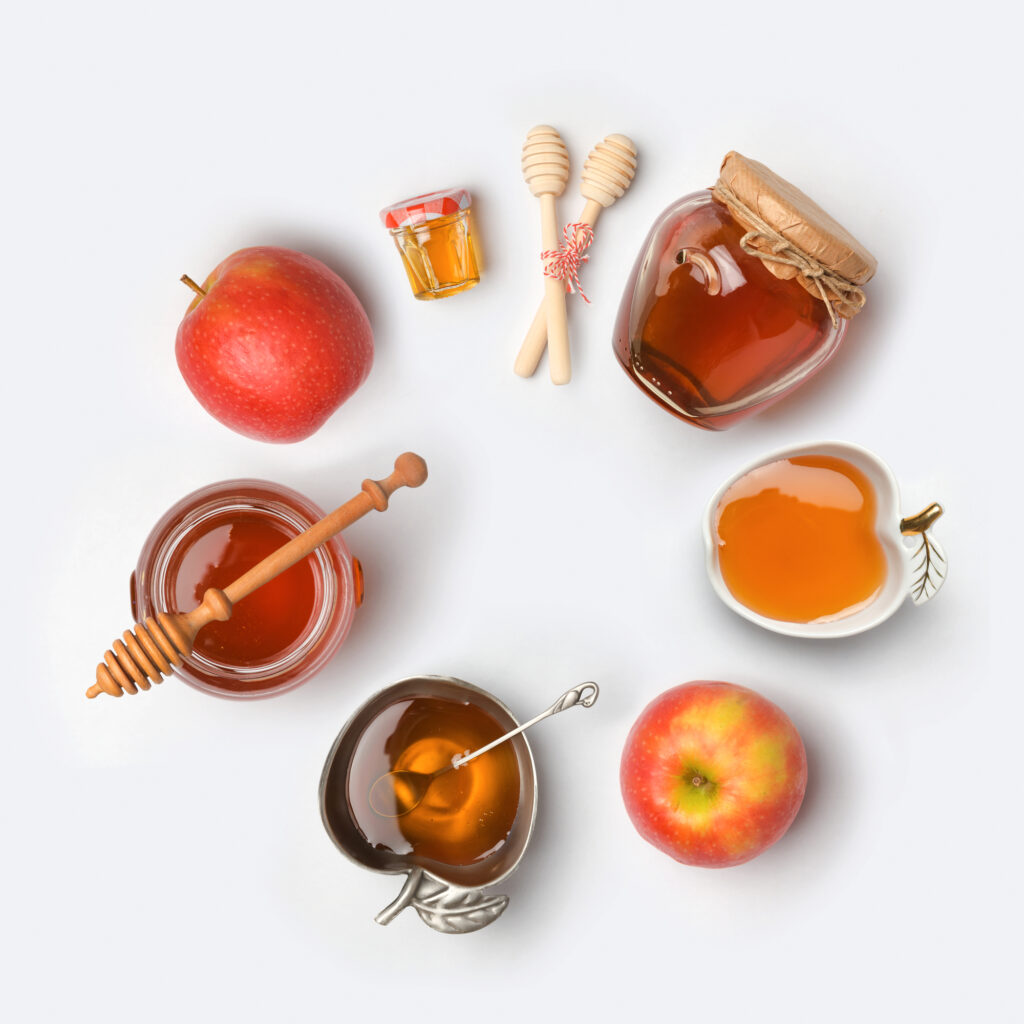Frequently Asked Questions about Rosh Hashanah

Getting a Better Understanding of the Jewish New Year
Rosh Hashanah, the Jewish New Year, will begin at sunset on Sunday, September 25, 2022, and last until the evening on Tuesday, September 27, 2022. For many in the Jewish faith and outside, as well, there much that is uncertain about the holiday. What is its purpose? What are the traditions that accompany the Jewish New Year? Let’s look at some of questions most often asked about Rosh Hashanah.
What Is Rosh Hashanah?
The first of the Jewish High Holy Days, which also include Yom Kippur, Rosh Hashanah marks the start of the civil year, according to Jewish teachings. The biblical name for the holiday, Yom Teruah, comes from the Hebrew, meaning “day of shouting or blasting.” It is celebrated on the first day of Tishrei, the seventh month of the Jewish ecclesiastical calendar. According to tradition, Rosh Hashanah celebrates both the anniversary of God’s creation of Adam and Eve, as well as the origin of humanity’s place in God’s creation.
How Long Does Rosh Hashanah Last?
In most Jewish traditions, the holiday spans two days, from sunset on the first day until sundown two days later. Some reform synagogues observe only one day. Many in the Jewish faith, however, tend to view Rosh Hashanah and Yom Kippur (10 days later) as a single holiday period.
What Is a Shofar?
One of the distinct traditions of Rosh Hashanah is the blowing of a shofar, a ram’s horn that is played like a trumpet. The blowing of the shofar is not, however, limited to the two-day period of Rosh Hashanah. It is typically blown periodically throughout Elul, the Jewish month preceding Rosh Hashanah. It is also traditionally a part of Rosh Hashanah services, as well as the end of Yom Kippur. Tradition has the shofar blown a total of 100 times each day.
Though the call to blow the shofar appears in the Bible, it is also considered a “wake-up call,” alerting members of the Jewish faith to live according to God’s laws. The sounds of the shofar are likened to a crying voice, encouraging self-reflection and repentance.
What Are the Traditional Foods Associated with Rosh Hashanah?
There are many food-related traditions tied to Rosh Hashanah:
- Sweet foods are consumed to symbolize the hope for a sweet new year. Among the common staples are apple dipped in honey, challah bread and tzimmes, a stew typically made with sweetened vegetables or with vegetables and fruit
- Challah bread is a round, braided loaf that often includes raisins or honey. The word “challah” refers to the mitzvah (a good deed) of separating out a portion of the dough before braiding to give to the priest. Challah bread is round to signify the cycle of life.
- Some traditions serve fish heads to represent the prayer to “be the head and not the tail”
- Pomegranates are traditional, symbolizing the call to be fruitful (of many seeds)
- Some foods are specifically mentioned in the Talmud, including dates, black-eyed peas, leeks, spinach and gourds
What Is the Tashlikh?
The tashlikh is a ceremony or ritual performed in most Jewish traditions on the first afternoon after Rosh Hashanah begins. In the ceremony, held near natural bodies of flowing water, prayers are said, and participants are called to symbolically cast off their sins, typically by throwing stones or bread into the water. In many communities, if the first afternoon of Rosh Hashanah falls on Shabbat (the Jewish day of rest), the tashlikh will be postponed until the second afternoon.
The Traditional Greetings during Rosh Hashanah
It’s common to greet others with special salutations during Rosh Hashanah. The typical one is Shanah Tovah, which translates from the Hebrew as “have a good year.” A similar greeting is Shanah Tovah Umetukah, which means “have a good and sweet year.” In the Sephardic tradition, people greet each other with “Tizku Leshanim Rabbot,” or “may you merit many years.” A more formal greeting that may be used is Ketivah VaChatimah Tovah, which calls for “a good inscription and sealing in the Book of Life.”
Compassionate Counsel in Your Time of Loss
At Gutterman’s and Gutterman Warheit, we have served the Jewish community for more than 125 years, providing comprehensive funeral and burial services. At our funeral chapels in New York and Florida, we offer guidance in a wide range of concerns, from the determination of an order of service at a memorial to the selection of a monument or marker, from preparations for sitting Shiva to the creation of a Yahrzeit calendar. We understand the unique customs within the different Jewish traditions and will help you pay your respects to a loved one while adhering to the tenets of your faith. We will also be your liaison with the Chevra Kadisha, helping facilitate preparation of the body for burial.
If you need guidance after the death of a loved one, or simply want to learn how we can be of service to you, call us at one of the numbers provided below. We are available 24 hours a day, 7 days a week to assist you.
Gutterman’s & Gutterman Warheit — Where Relationships Matter
Family Owned and Operated Since 1892
Rockville Centre: (516)764-9400 | Woodbury: (516)921-5757 | Brooklyn: (718)284-1500
Boca Raton, FL: (561)997-9900 | (800)992-9262
